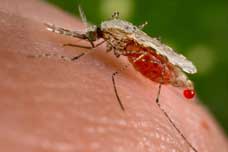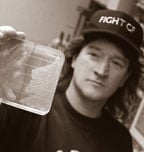A UCLA cancer research team has recently received a $7.6 million grant from the California Institute for Regenerative Medicine. This award will support research into genetically engineered white blood cells which can selectively target and kill tumor cells, while simultaneously activating other immune cells to do the same.
Read MoreTags: CA, University of California Los Angeles, Stem Cells, Los Angeles, genetic engineering, UCLA, Biotechnology Vendor Showcase, new funding, cancer research funding, tumor cells
Emmanuelle Charpentier, Ph.D., and Jennifer A. Doudna, Ph.D., have been awarded the 2015 Breakthrough Prize in Life Sciences for their work in developing the CRISPR/Cas9 genome editing tool. Dr. Charpentier is the head of the Regulation in Infection Biology department at the Helmholtz-Zentrum für Infektionsforschung (Helmholtz Centre for Infection Research) in Braunschweig, Germany, and also a co-founder and advisor to Swiss drug developer CRISPR Therapeutics.
Read MoreTags: CA, genome research, Southwest, genetic engineering, 2015, Berkeley, BioResearch Product Faire Event, UC Berkeley, UCBerk
 Synthetic biology is the application of engineering principles to altering components of biological systems, like genes and cells, towards creating new and revised living things (watch the video below for an introduction). It's arguably the most radical, cutting-edge laboratory science field today, and one that calls on its scientists to grapple with ethics as well as biotechnology. At the forefront of this life science revolution is the University of California Berkeley-led consortium SynBERC: the Synthetic Biology Engineering Research Center, with partner colleagues at UCSF, Stanford, MIT, and Harvard. Just this week, principal synbio investigators from these institutions came together with industry scientists and ethicists for a symposium on the UCB campus titled Programming Life: the revolutionary potential of synthetic biology, co-sponsored by SynBERC and Discover Magazine. Whether we are going to continue down the road of reengineering life was not the question so much as how we will go about that delicate task and what the implications and promises are of such a bold project.
Synthetic biology is the application of engineering principles to altering components of biological systems, like genes and cells, towards creating new and revised living things (watch the video below for an introduction). It's arguably the most radical, cutting-edge laboratory science field today, and one that calls on its scientists to grapple with ethics as well as biotechnology. At the forefront of this life science revolution is the University of California Berkeley-led consortium SynBERC: the Synthetic Biology Engineering Research Center, with partner colleagues at UCSF, Stanford, MIT, and Harvard. Just this week, principal synbio investigators from these institutions came together with industry scientists and ethicists for a symposium on the UCB campus titled Programming Life: the revolutionary potential of synthetic biology, co-sponsored by SynBERC and Discover Magazine. Whether we are going to continue down the road of reengineering life was not the question so much as how we will go about that delicate task and what the implications and promises are of such a bold project.
Tags: 2014, CA, 2013, University of California Berkeley, biofuels, synthetic biology, Southwest, California, University of California, genetic engineering, Berkeley, BioResearch Product Faire Event, Research, Berkeley Labs, UCBerk, UC Berkley
2012 was a big year for the science of snipping DNA to introduce genetic changes into a cell, also known as genome editing. Though Science magazine hailed two new techniques for selectively cutting and pasting DNA in the field of genome engineering as together constituting one of the Top 10 scientific breakthroughs of the year, those methods may already have been surpassed by researchers at the University of California Berkeley using RNA and a single protein. Faster, simpler, and cheaper, the UCB team led by Dr. Jennifer Doudna published initial results of their work genetically modifying bacteria using the RNA-based DNA cleavage technique last summer. The response from the the life science community was extremely positive, with reviews calling it a "tour de force" and a "a real hit," according to the latest press release. Now three more papers are coming out based on the work of the Doudna Lab showing that the RNA programming technique using a bacterial enzyme known as Cas9 is equally effective in making alterations to human genes.
Tags: 2014, CA, 2013, University of California Berkeley, AIDS Research, Molecular Engineering, gene therapy, Southwest, California, University of California, genetic engineering, Berkeley, BioResearch Product Faire Event, Harvard, genomics research, UC Berkeley, UCBerk
How is it that a prominent Rockefeller University professor and director of the Laboratory of Neurogenetics and Behavior is sought out by a fashion magazine one month, the New York Magazine the next, and a CBS interview just last week? Dr. Leslie Vosshall studies the mechanism of scent recognition in humans on the one hand, and attraction to humans by mosquitos on the other. We still know so little about smell, and even less about why an insect like the mosquito hones in on one of us more often than another, but the Vosshall Lab is adding insight to the genetic basis of olfactory recognition. Given that mosquitos are a global vector for disease, including right here in the U.S., Vosshall's research aims to find out what it is about a particular one of us that excites the little bug to such raptures. If we know that, perhaps we can intervene productively to keep them at bay. As for the fashion magazine (Elle Canada), they wanted an expert on scent to comment on designers' and retailers' new fad for marketing their products with a scent component.
Tags: Rockefeller University, Northeast, women in science, New York, 2012, genetic engineering, Neuroscience, BioResearch Product Faire Event, NY, New York City
 It's summer in the Northern Hemisphere, and in most places that means mosquitos are out for our blood, which wouldn't be much to give up if it weren't for the itchy -- and in many parts of the world, deadly -- package that the tiny insect leaves behind. Plasmodium falciparum is the human malaria pathogen that kills over a million people annually around the world (largely infants, young children and pregnant women, most of them in Africa). One approach to combatting the spread of the disease is to genetically engineer a mosquito that cannot transmit the parasite and yet is able to reproduce with mosquitos that do, in order to infiltrate and alter the population overall to become one that is benign (except for the itching).
It's summer in the Northern Hemisphere, and in most places that means mosquitos are out for our blood, which wouldn't be much to give up if it weren't for the itchy -- and in many parts of the world, deadly -- package that the tiny insect leaves behind. Plasmodium falciparum is the human malaria pathogen that kills over a million people annually around the world (largely infants, young children and pregnant women, most of them in Africa). One approach to combatting the spread of the disease is to genetically engineer a mosquito that cannot transmit the parasite and yet is able to reproduce with mosquitos that do, in order to infiltrate and alter the population overall to become one that is benign (except for the itching).
Tags: CA, University of California Irvine, Southwest, California, 2012, genetic engineering, BioResearch Product Faire Event, Irvine, UCI
 University of Cincinnati College of Medicine molecular geneticist Daniel Hassett (right) has made a name for himself as a determined researcher in the fight against cystic fibrosis (CF). He is also on the front line of bioscience research into creating "superbugs" that eat waste and generate energy, improving dramatically on the efficiency of traditional waste water treatment systems. In a radio interview on WVXU Cincinnati's Focus on Technology, commentator Ann Thompson describes the problem: the largest user of energy is wastewater treatment; the second largest user of water is energy production. If you can find a way to both clean water and generate electricity, you're in business.
University of Cincinnati College of Medicine molecular geneticist Daniel Hassett (right) has made a name for himself as a determined researcher in the fight against cystic fibrosis (CF). He is also on the front line of bioscience research into creating "superbugs" that eat waste and generate energy, improving dramatically on the efficiency of traditional waste water treatment systems. In a radio interview on WVXU Cincinnati's Focus on Technology, commentator Ann Thompson describes the problem: the largest user of energy is wastewater treatment; the second largest user of water is energy production. If you can find a way to both clean water and generate electricity, you're in business.
Tags: Bioscience research, Midwest, Ohio, biomedical research, University of Cincinnati, genetic engineering, molecular ecology research, BioResearch Product Faire Event, Cincinnati, BRPF, research scientist

